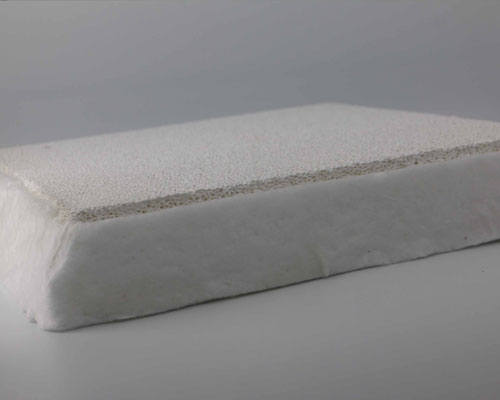Ceramic foam molten aluminum filtration technology has been used to remove inclusions in molten aluminum for more than 30 years. After the foam ceramic filter plate was successfully used in production practice, it quickly replaced a variety of filter carriers such as glass cloth, microporous ceramic tubes, alumina balls, and was widely used in primary aluminum production and aluminum processing industries in various countries.
The ceramic foam filter plate has a network pore structure, has a certain strength, can withstand the pressure difference of the metal liquid level and the impact of the metal flow, but it is brittle and fragile. Because this material has a precise structure, uniform quality, and has a great surface area, so the filtering effect is excellent.
Ceramic foam filter main technical performance is as follows:
Thickness: 50mm
Specification: square, 7 kinds of sides from 178mm-584mm
Porosity coefficient: 0.85-0.90
Advantages of filter plate to purify molten aluminum
- Increase extrusion productivity
- Extend mold life and reduce the number of mold repairs.
- Significantly improve the surface quality of aluminum profiles.
- The use of ceramic foam filter plates to purify aluminum melt has great advantages in reducing production costs and improving product quality.
In addition, ceramic foam filter plates are used for molten aluminum filtration. The device is an ordinary steel shell lined with prefabricated refractory brick pads. It is arranged horizontally in the metal launder, that is, between the launder and the casting well. Therefore, there is no need to make major changes to the existing casting system, but only a small space. Moreover, a filter plate can effectively filter all the metals of one melting stage, and it is very convenient to remove or replace after use. It is also suitable for horizontal or vertical casting systems.
Foam ceramic filter plates have a variety of specifications and sizes of porosity, which are suitable for almost all aluminum processing industries, such as electrolytic aluminum plants, strip processing plants, foil processing plants, tubular rod and wire processing plants, and recycled aluminum ingot plants.

